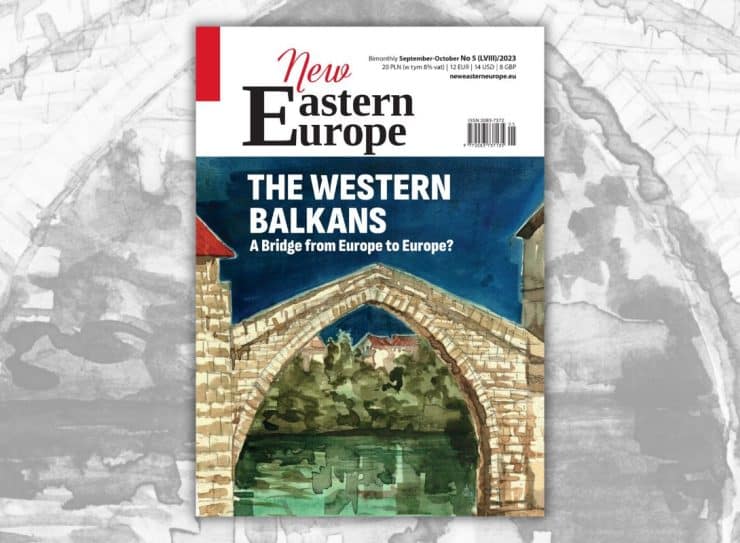19 September 2023
Twenty years later: exposing the hidden cause for the delayed EU integration of the Western Balkans
Op-Ed for New Eastern Europe by Dr Antonios Nestoras, ELF Deputy Executive Director

Op-Ed for New Eastern Europe by Dr Antonios Nestoras, ELF Deputy Executive Director

As the Western Balkans mark two decades since the 2003 Thessaloniki Summit, an atmosphere of reflection, rather than celebration, envelops the region. Amidst the initial hopes ignited by the summit’s commitment to EU enlargement, the journey towards integration has been mired in complexities and frustrations. A deeper exploration into the underlying causes reveals a surprising factor at the heart of the delay – the state of public administration, an often-overlooked linchpin in the ambitious pursuit of EU integration.
In 2003, the historic Thessaloniki Summit marked a pivotal moment for Europe and its enduring commitment to enlargement and unity. At the heart of this gathering in the timeless Greek city was the visionary idea to bring the Western Balkans into the European family. The summit not only reaffirmed the EU’s dedication to the enlargement process but also set into motion the integration pathways for countries emerging from a tumultuous past. This was a gesture of hope, signifying that shared values and collaborative efforts could overcome even the most deep-seated challenges.
However, two decades after the hopeful summit, the aspirations of the Western Balkans and their integration into the European Union remain, in many ways, unfulfilled.
For a swifter EU enlargement, integrating public administration should be the first order of business. A staged integration approach, anchored on this premise, could be the game-changer the enlargement process needs. As the world continues to evolve, it remains to be seen how the EU and the Western Balkans navigate their shared path toward unity and cooperation – and the very essence of what the European Union wants to represent in the future.